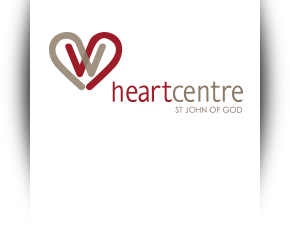Palpitations & Arrhythmia
If you feel your heart beating, this is called palpitations. Palpitations may be felt as missed beats or extra heartbeats, an irregular heart rhythm, feeling your heart racing, or feeling a fluttering sensation in your chest.
There are many normal situations where you might feel your heartbeat, for example during heavy physical exertion, when frightened, or when emotionally excited.
Palpitations may also develop as a result of a heart rhythm disorder, called an arrhythmia. There are different types or arrhythmia; some of these may just cause uncomfortable palpitations, whereas others might cause more serious problems.
You should see your GP if you develop palpitations, so that the underlying cause can be assessed. Initial appropriate tests, including blood tests and electrocardiogram (ECG) can be arranged.
Your GP might also refer you to Heart Centre St John of God for a Holter moniter and echocardiogram, and referral for a cardiologist opinion. Your cardiologist might recommend that you undergo an electrophysiological study to determine the precise nature of the arrhythmia. This electrophysiological study will also help to decide if catheter ablation is appropriate.
